This post is based off the podcast – 7 Myths People Have About Veterans And What To Do About Them.
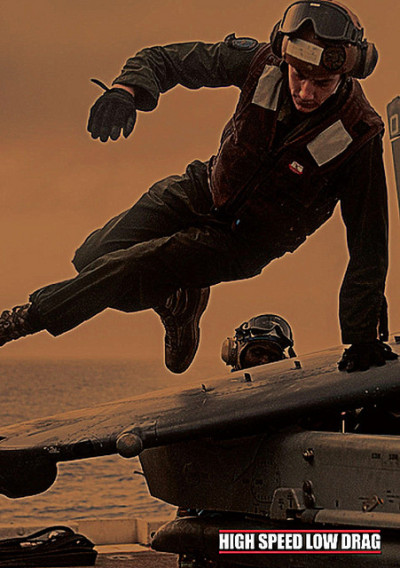
Tom: Hey, High Speed Nation, Tom Morkes is here with Antonio Centeno of High Speed Low Drag, and we want to welcome you to another episode of the High Speed Low Drag Podcast. Antonio, how are you doing today?
Antonio: I’m doing great, Tom. Now, you sound a little bit tired. Did I get you up at 5:00 a.m.?
Tom: You did, actually. But I’ll be honest, I should be used to this. It’s actually not so bad.
Antonio: I know. You’re supposed to be like high speed low drag Army helicopter guy jumping out. Isn’t that one of the myths that we just love to get up at 3 o’clock in the morning and knockout 100 pull-ups, 200 crunches and go off and run, do a 20 mile march, or is that the Marines?
Tom: I mean, I do that on a regular basis.
Antonio: Yes, every single morning.
Tom: Myth for most people maybe.
Antonio: Exactly. No. I think that’s what we’re going to be talking today. If you guys didn’t see the subject matter, we’re going to be talking about seven myths that civilian employers have about veterans. And these are things in many ways that can work to our advantage.
These are things which we are carrying the torch. There are a lot of great positive myths out there, but there’s also some negative ones. And we’re going to talk about how to possibly overcome those, how to deal with them.
But the main point is to kind of open your mind to realize that as you’re getting out there are going to be perceptions. There are people that are going to make a quick judgment when they hear the word, “Oh, you were in the Army,” or, “Oh, you were a sailor,” or, “Oh, you were an airman.”
You are immediately going to have something that pops in their mind. In the same way that when somebody tells you, “Oh, I’m from France,” or “I’m a doctor.” Immediately, there are just myths that we associate with the professions or with where people come from.
Tom: Yeah. And today, we’re going to get into just seven of them. There’s probably more. And who knows, we might go into some offshoots of these. But we’re going to focus on just seven in particular that we’ve run into since we’ve been out and that we see transitioning vets into all the time. So I’m going to take it away with myth number one, if you’re ready to go, Antonio.
Antonio: I know we were talking just before this about our — Actually, we got a mastermind that’s coming up and we’d been working on for High Speed Elite. I know that we’ve got one webinar that’s about to launch. When is that?
Tom: Yes. So, the live training is going to be on 21 August at 3:00 p.m. PST and 6:00 p.m. EST.
Antonio: Okay. In case anyone hasn’t checked it out, then go over to the High Speed Low Drag website and they can learn more about it over there. And, yeah, it’s something that I’m going to be there. Tom’s going to be there. We’re going to have John Dumas from EntrepreneurOnFire who is also an Army veteran.
If you’ve been listening to this podcast, he’s one of the guys running this. But, yeah, 3:00 p.m. Pacific, 6:00 p.m. Eastern Time, 5:00 p.m. for those of us on Central.
We like to make it pretty simple. Although we didn’t actually put out military times, which is probably something we should have done. I’m thinking like we’ve already — That’s part of making the transition, guys. Is that you don’t say everything in military time because people just kind of look at you strange.
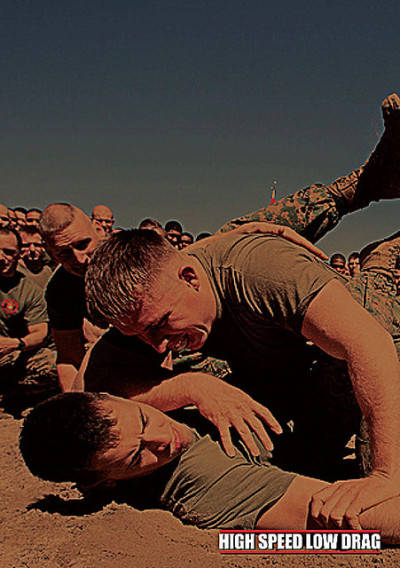 Tom: Yeah, exactly. But, yeah. In fact, I don’t know, I’d be hard pressed to convert that back to military. I think that will be 15:00, I don’t know.
Tom: Yeah, exactly. But, yeah. In fact, I don’t know, I’d be hard pressed to convert that back to military. I think that will be 15:00, I don’t know.
Antonio: 15:00.
Tom: I don’t know.
Antonio: 18:00, yeah.
Tom: Exactly.
Antonio: Yes. All right. Well, let’s go ahead and let’s jump into the myths. So what is myth number one? What have you got for me?
Tom: Yeah. So myth number one is that vets have been trained to be mindless drones.
And while maybe there are some cases of veterans on active duty who were trained to take orders and follow everything to a T, I think they are the rare exception, like the 1%.
When I think of veterans, the people I know, the women, the men and women that I worked with in the service and I’ve seen since I get out and transition to the civilian world, it’s anything but that. I find that most of them, most of the veterans that I interacted with and worked with are actually really flexible, really adaptable and they’re like really creative, free thinkers.
And, I think, that’s actually kind of the result of being put in heavily uncertain circumstances and being put in like chaotic environments and just having to deal with it. So that’s kind of my opinion on that. How about you, Antonio?
Antonio: Well, I think a lot of people have watched too many movies and they have this belief that, yeah, we’re brainwashed when we go in. Wait a minute. What makes the grass grow? Okay, I’m not — They’ve watched maybe a few movies and they think that, okay, those extreme examples, that’s what people are like.
But I think a lot of the more modern movies are doing a better job or capturing how every person is different and every individual coming out, they are unique individual.
In my experience with the Marine Corps, they do, especially with boot camp, there is a breakdown period and then a buildup period. But there’s always a human being behind that. And I never met anyone that was truly I thought I would have labeled brainwashed.
Well, maybe there were a few in the infantry but it was one of those deals that I always felt I surrounded myself with people that were always thinking what am I going to do afterwards or what is it that I really enjoy about what I’m doing here or how can I better serve the men that I’m responsible for?
And they were always trying to figure out. But it wasn’t mindless. It was always about — It was about, I think, usually becoming a better guy, a better man, a better woman. And, yeah, I just feel that’s a myth, that it’s out there and it’s not the most positive one that we are, in a sense, these mindless drones. But it’s just something to be aware of. And how do you think, Tom, that somebody can, in a sense, help overcome this myth?
If you’re in an interview and you’ve had a feeling that, okay, they’re maybe looking at me as a mindless drone or they maybe even asked the question and not supposed to, but it could be something, “Well, oh, my brother was in the army and can’t think for himself.”
Tom: Yeah. I know, I mean, that’s a really good question. I was just thinking about that. And so, I guess, my thought on that or the way I would respond to something like that, if I felt inclined to respond, I would say something along the lines of telling a story maybe, a short story, something pretty quick that gives a demonstration of some of the stuff that I had to deal with in the Army.
In my case, it’s one of those kind of uncertain situations or circumstances that I was talking to you about or even examples of other guys that I’ve worked with that demonstrates that there was quite a bit of creative thinking that I had to go on and that there was like literally like if I or somebody in my platoon had been mindless, there could have been bad results. But because everybody was free thinking, we were okay. So, I think, everybody has got stories like that.
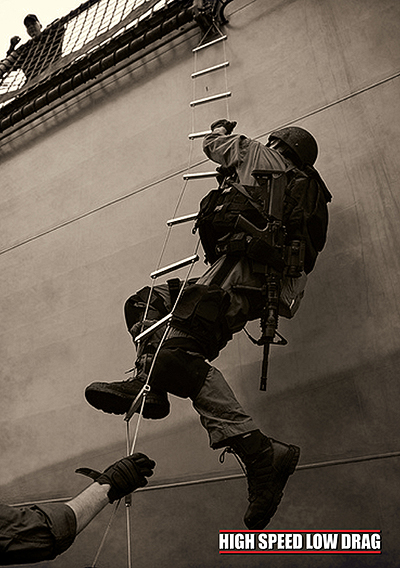 Antonio: I remember going through training at TBS and it was a part of that. No, it wasn’t TBS. It was OCS. And there was like a queue but there was a big boxed area where you would go into these rooms.
Antonio: I remember going through training at TBS and it was a part of that. No, it wasn’t TBS. It was OCS. And there was like a queue but there was a big boxed area where you would go into these rooms.
And I remember it was like very mysterious because to me I didn’t get to see the other rooms. But you were given a problem and you would have three other people on your team, you had a fire team, and you would to figure out how to solve this problem that was really in some ways unsolvable. Or it was basically forcing you to think outside the box.
Another thing that I used to write with Chris Brogan over at Owner Magazine and we just put out an article actually about a week ago. And we talked about commander’s intent. And, I think, that is a great example of how you cannot be mindless.
Because, Tom, I think it’s the same in the Army. But commander’s intent in the Marine Corps is you’re thinking about at the end state and you’re envisioning what that end state should look like. And that is the commander’s intent.
And how you get there, the commander doesn’t tell you how to get there. He simply wants you to — It’s not just take that hill but I want that hill to be usable. I want to have it set up so that we are, in a sense, we’ve set up an overlook of this area that we’ve got fields of fire in this direction, in this direction.
That is his intent. So what that tells you is, okay, we can’t just throw white phosphorous all over the place. It’s like, okay, we’re going to have to — There’s a certain way you can have to take that hill. And you can’t just — A mindless drone could not have done that.
Tom: No, definitely not. And I actually just wrote a blog post recently that covers actually just one aspect of this and it’s the concept tied to commander’s intent. It’s the idea of leading by parameters and not pinpoints. So pinpoint might be like a pinpoint on the map saying, “You know, this is what you do, nothing else, nothing outside of this.”
Which limits your action. And leading by parameter is saying these are your left and right limits. And then within that, anything goes to find, to achieve success. And in the case of the military, it will be mission success.
But in the civilian world, it would be like setting your right and left parameters like how you want to run your business. Or if you’re trying to get a job, maybe something along the lines of what are your highest values and how do they align with what you’re trying to achieve.
So I just think it’s fascinating. I think most military, men and women, actually work better in the parameter aspect than the pinpoint, the idea of being told exactly what to do and then following. I think they’re better guided through that commander’s intent. That’s definitely the case with me in my platoon.
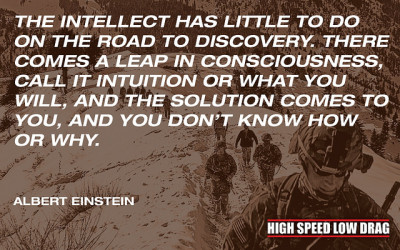 Antonio: I love it. I know we’re spending a lot of time here on myth number one. But, I think, it is something that it’s one of the biggest negative ones that we face.
Antonio: I love it. I know we’re spending a lot of time here on myth number one. But, I think, it is something that it’s one of the biggest negative ones that we face.
And a lot of people, especially creatives — I work with a number of artists and writers and I have friends that are — I went to the University of Texas, which is very liberal school right there in the oasis called Austin, Texas.
I had a number of Aggie friends. So I know that my friends in A&M were always like, “Oh my gosh, you guys are tea sippers.”
But in any case, one thing I did learn with a lot of creatives is they are scared of structure. When really, if you look at the greatest artists, they had incredible structure because what structure enables you to do is to be creative. And we’ve got a limited amount of willpower and the ability to think hard. It requires a lot of energy. And if you can save that energy and you can focus in on the true problems and you don’t have to worry about it, so parameters are a great thing.
And whether or not you’re a creative, whether or not you are a parameter checklist lover — which I love checklist, by the way. That does not make you a mindless drone that you simply use checklist, that you bring order to disorder because, I think, it gives you a lot more freedom to be creative where it actually counts.
Tom: Yeah, I completely agree. Yeah, this is a really good topic. It has to be something we dig in.
Antonio: I’m thinking that we could definitely create. And if anyone listening, you’ve heard it, Tom and I have both already written on this at other websites. Reach out to us at High Speed Low Drag. Guys, we want to help you. And we’ve got a contact form. We’d love to hear from you. But let’s go ahead and move on to myth number two, which is veterans are mentally and emotionally unstable. Now, Tom, you got maybe instances or any stories to share about this?
Tom: Yeah. Well, it’s funny. Just a personal anecdote, I guess. Not even, not too long, actually. I just got out of the military. Got down literally just about a year ago. It was when I started terminal. On this time last year, I was on terminal leave. I’m pretty fresh out. One of the things that people often — Sometimes, maybe not often, but sometimes ask is what I did. And, of course, they’re really wondering.
Some are more blatant and ask about Iraq or Afghanistan. Others just kind of really want to know the juicy details or something like that. So, yeah, I mean, I’ll tell them that, yeah, I went there, Iraq, and I was there for a year. But what I’ve noticed is that some people kind of like they ask kind of prodding questions to the point where it’s like, without saying if they’re asking like, “Did you have any PTSD?” Like, “Did you have nightmares? Did you have any issues?” That’s really what they’re getting at.
Which, I think, is funny because I don’t consider myself like — I guess, maybe I’m biased but I’m like I don’t think I’m crazy. But I think that’s kind of interesting.
And I’m sure I’m not alone in that. I think people will try, will kind of peg you that way especially if you’re like a combat veteran or somebody that’s been overseas. I think their immediate way to kind of label you is to think that you probably do suffer from something like that.
I don’t know why that is the case but it seems like maybe a part of that is that it’s almost like they cut the cusp of PTSD and the issues of the military had been so publicized that people are used to think that really most everybody that comes back from overseas has PTSD. So, yeah, I think it’s a real thing that people really do view us that way until they get a chance to sit down and talk with you. And, Antonio, I don’t know what your thoughts are on that or if you have anything similar experiences.
Antonio: There’s a great video over. There’s the website, The Rhino Den. So go ahead and look them up, guys. And these are a lot of former Special Ops guys that talk about this. They created some great videos. But one of the videos is things that civilians ask you and you just want to choke them out. But one of them is: Have you killed anybody?
And it’s strange because — And they say there’s three things that you could respond to that. One is that you have had actually do something that literally you’ve got demons and you don’t want to talk about that with this random person who you barely know, who is prodding.
The other one is that you haven’t and I fall in that category. I was an officer. I was an S1 Adjutant in an Infantry battalion. So I’m surrounded by a bunch of hard charging O3s but I’m an O1. My job, the way I look at it, if I’m actually firing an M16, it has gotten bad and — What was it? The armory asked me if I wanted the M16. I’m like, “Well, if I knew one, I’ll be able to pick one off the ground. It’ll be that bad. You know, I’ll just take my — I’ll be fine with my 9 mil here.”
But so, if I haven’t killed somebody, does that mean — I have to give them this no answer like I didn’t fulfill my job. And for the third one, I totally forgot what it was so I have to link to the video. But the video is great. I don’t know sometimes why they’re asking these questions or what their personal goal is. But I do try to diffuse the situation. Because I realized, for a lot of people, they simply wanted to figure out, are you a threat? Are you someone that I can trust that is going to be mentally stable?
Tom: Well, it’s funny you say that because I actually think that it might be, most of the time, it might be less a situation of are you stable? At least in my perspective, it’s more a case of they’re just really fascinated by that subject, right? Because how many people could have possibly done that? Trust me, it doesn’t justify the question nor justify whatever response. I don’t know what the right response to that.
But, I think, that’s where most people come in because they’re just really curious. Wow, what is that like or something? I think it’s just really more of curiosity thing than a trying to find out if you’re stable per se. And that might be my thoughts on that.
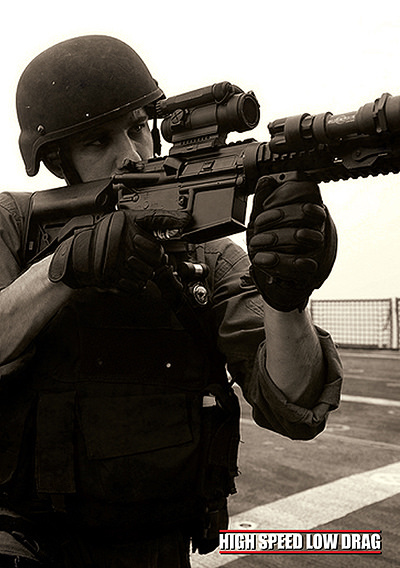 Antonio: Yeah. All right, I have to say the only thing that I feel that’s different about me — And I’ve got a pretty interesting memory. Like I can selectively choose to turn off parts of my life and not think about them.
Antonio: Yeah. All right, I have to say the only thing that I feel that’s different about me — And I’ve got a pretty interesting memory. Like I can selectively choose to turn off parts of my life and not think about them.
So I have to admit, I stay focused more on the now and with spending time with my kids and with my family and I don’t really think much about stuff. I find it more emotional though. Definitely, I have no problem.
I cry a lot more, which is kind of strange to admit. But I find myself watching like Frozen with my daughters and crying and my partner is looking at me like, “Why are you crying?” And I’m just like, “I don’t know.”
Tom: You can admit it. Your daughters weren’t around when you were watching it. That’s okay.
Antonio: Hey. I was with them. I was — Yeah, okay. You got me. No. I love watching movies with my kids, one of my ways to kind of tune out and just have a good time. And, yeah, they don’t like — If I watch a movie by myself, I fast forward through half of it, which is the worst way to watch a movie. All right.
So we’re going to go on to myth number three. Veterans are combative and physically aggressive. And this one cracks me up because of all of my friends in college, I think, I am the least combative and physically aggressive.
And I went to undergrad in Iowa. So I’m always surrounded and I hang out with the wrestlers. And if anyone doesn’t know the State of Iowa, which is pretty much some of the most amazing wrestlers in the world. I mean, this is all these guys live and breathe for. So whenever we would go out to a bar and we’d have a few beers, it never like got into a verbal argument. No. We just took each other to the floor. And I was the guy getting taken to the floor most of the times because I wasn’t the biggest and I did not grow up in Iowa.
So I didn’t know the wrestling moves. And these guys are good. I mean, they’ll just pin you down, do the fish hook. They got their finger in your mouth and just having fun with you and you’re just like, “God.” So I was surrounded by this. One of my buddies is now an MMA fighter or he did that for a while, lower level kind of stuff. The other one, he’s — They’re all sheriff deputies. They’re very physical kind of people.
But of all of them, I think I was the least likely to actually — Or if you would have looked at all of us, how did I go into Marine Corps? And so it is something that I find that a lot of people, especially vets, we’re not. We want to diffuse the situation. I think a lot of it is because we realize fights, especially most fights that we’ve seen, are very unfair. You don’t want a fair fight, a fair fight where both sides are going to get equally bloodied. No one wants to get into that.
I think it was Colin Powell that talked about how he wants to fight to be as unfair as possible. He will hit his opponent at the weakest point as hard as he can and end it with, basically, as little bloodshed on his side as he can. I think many of us approach that like it’s — We don’t want to be combative. Because if we do, we aren’t trained to, most of us, to restrain somebody. We’re trained to kill somebody. And like I don’t really know how to restrain. I mean, I’ve got some basic ideas of restraint but I’m more thinking of — Okay, I’m more one hit and I can immediately get out of there.
Tom: Yeah. I’d say I echo that.
I mean, the vast majority that I know of veterans, active duty or not, even those who have gotten out, it’s that the opposite is truly the case. And I think a lot of that too, for most of us, it’s just like there’s really nothing to prove. And so there’s like less reason to be combative or to be physically aggressive.
So, yeah, I think that one is pretty much really like just completely wrong. Like I don’t think there’s much validity to it at all. I think veterans, like civilians, will be as combative or physically aggressive as the average civilian. So, yeah, I think that’s totally irrelevant in my opinion.
Antonio: I love that point that we have nothing to prove. I think I’ve said this before, but we always quote old Ronald Reagan for saying that most people go throughout life wondering if they made a difference. I’ll go ahead and I’ll paraphrase. I’ll say men of the military don’t have that problem but I don’t want to bring up the natural little bit of conflict between the Marines and the Army.
Tom: That’s fair.
Antonio: All right. So let’s go to myth number four. And this is veterans are foul-mouthed and noisy. And I will admit that we like to use certain words in the military. There were no women in the Infantry. If there were, we probably even would have more colorful words because it’s just one of those things in the Marine Corps. We love the word “freaking”. I don’t know if you guys use that much in the Army, but it was always “freaking this” and “freaking that”. But we know what it stood for and oftentimes many people would bring out some of those stuffs.
But colorful language and, I think, cursing in general, for me, I always tried to stay away from it when I was an officer and I just felt that it wasn’t really becoming of the — My job was to manage and to try to inspire as best I could. And I definitely worked hard to try to become a better officer over my time in.
And this is the way what my mom explained to me is that being foul-mouthed actually just meant that you maybe didn’t have the best vocabulary.
And so, to me, when I flipped that, I always thought, okay, I need to be able to articulate myself a bit better and to better explain and to expand my vocabulary and not try to just always throw in certain adjectives which you could argue that certain words that start with an F or start with an S or start with an M, that they all — In a sense, they could be many things and they can almost describe anything you want in life, but I’m of the perception that most vets I know that have gotten out, unless we maybe have a few drinks and we get a little bit, our sailor mouth comes out, which apologies to any very tightlipped, well-spoken sailors, but that is the word that we would use.
Tom: Yeah. And can I just comment on the last one? I don’t think there’s any real like tangible veracity to this myth at all in terms of like veterans being more foul-mouthed and noisy than civilian counterparts. Yeah, I actually have a little bit of a foul mouth and I could be noisy but, again, I don’t think more so than the average person. So I find this kind of irrelevant too in terms of like if people perceive me that way.
I think the one on one interaction that you have with somebody can very quickly change that perception. Like, Antonio, if somebody met you, I think very quickly, they had had that stereotype before, that would be out the window.
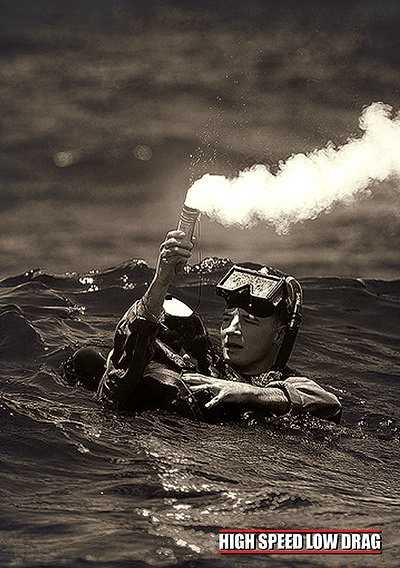 Antonio: Yeah. Although it is kind of fun sometimes to throw people for a loop. I find that, yeah, I’m not barking as much anymore. One thing you do see in the Marine Corps is that we love to bark at each other.
Antonio: Yeah. Although it is kind of fun sometimes to throw people for a loop. I find that, yeah, I’m not barking as much anymore. One thing you do see in the Marine Corps is that we love to bark at each other.
I’m sure you guys, I know you guys have your little yells and shouts. But occasionally, I have to admit, I think I was in London one time and I walked by and I see somebody that has something with an EGA.
And it’s like, of course, like I don’t have time to say anything. It’s just like, just looked at him and go, “Oorah.” Of course, they get it immediately. But everyone else on that subway cars were probably going, “What was that about?”
Tom: Like I said, I’m probably more fresh out but I haven’t had trouble, I guess, transitioning out of that piece of it, so lucky for me. But, I guess, if I ever do make those noises, it’s usually as a joke to another vet.
That’s about it. It’s just one of those things, I guess, maybe our “tribe”, that concept does to recognize one another.
Antonio: And you just brought up the word tribe that Seth Godin, I think, is made pretty popular. And to some extent, I think that a lot of people have created pretty good tribes. But we truly, again, we come from a real tribe, I mean, a real brotherhood.
Just last Saturday, we buried a Korean War vet. And in this was my neighbor, older guy, great grandfather. It’s one of those things that when you see a man going down into the ground and there are all these veterans there, many of them maybe didn’t even know them. But they show up and they pay their respects. And, to me, that’s a tribe, that literally we see each other from birth. Unfortunately, there’s a lot of widows out there.
There’s a lot of people out there that kids, that they’re not going to see their fathers as they grow up. And I really think that this is a true tribe, that we actually stay in touch and we try to take care and to help out those that, in a sense, have fallen or those that — We don’t forget and that can be the true mark of a tribe.
Tom: Yeah. And I know this is kind of going off on the tangent there but to just echo that, the concept, especially the burial aspect of it, I always thought that that was one of the coolest aspects of being in the military. Especially when my grandfather passed away, he was a World War II veteran, and then to see that they had the guns out and they did the salute and everything like that, they did the flag. I just really stood back. And at that time, I was active duty, so it’s like I just took it for granted that I was a part of the military, et cetera, et cetera.
But it was like it really took be aback and made me like pause. So that’s just pretty cool. How many years ago was that? Geez. 60 years or something like that? And 60 or 70, and that’s like wow. To get that burial, it was just like one of those kind of eye opening experiences just to think that everybody listening to this, obviously veterans, is going to be a part of that. I think that’s really cool.
Antonio: Yeah. And it’s funny how it all comes full circle because I remember being in active duty and, actually, it’s one of those things we kind of joke about. It’s like, “Damn it, who’s got funeral duty?” It’s just like, “I don’t want to go in.” I was like, “Yeah, but we got to do it.” But then you kind of reach a point when you start seeing how important it is to those guys.
Tom: To the families too. That’s the biggest thing.
Antonio: And the family. I mean, you go to change of command. And I see vets — I was the Adjutant at 3rd Battalion 1st Marines when we did the change of command. When we’re handing this off, most of the crowd, they weren’t our families. A lot of them were older vets that I didn’t even know who these guys were. But they had at some point certain they knew a change of command was going on and they came out. I mean, it was like half a crowd was like retired vets and I was like, wow. These guys, it’s something that was so powerful in their lives and it just goes to show that we never forget that and it’s a great time and I was just very fortunate to be a part of that.
Tom: Yeah.
Antonio: So, myth number five. Veterans are all hardworking, nose to the grindstone types. Every single one of us. Is that the case?
Tom: I think maybe some are and I think maybe some aren’t. I even see just in myself, I see in both aspects. I can definitely be very relaxed and step back and, I guess, that might be the antithesis of — Well, maybe the antithesis of that will be just a very lazy veteran which, by the way, yeah, I’ve met those people too. Well, I think it’s actually, this is a good myth. Like I think that this is a myth that I would want to leverage and it’s actually something that I’ve never like I don’t try to disprove because, I think, it’s a positive trait.
I think, again, just like anybody else, you’re going to find veterans that are very hardworking and they are the nose to the grindstone types and you’ll find probably just as many, 50% or even majority, that maybe that’s not the case. Maybe they’re just trying to get by like everybody else and get paid, do their job and go home to their families. And they could care less about the whole focus on work and all that. I don’t know, Antonio, though. I’d like to hear your opinions on that.
Antonio: I think many of us are products of the system. I mean, when you’re on a boat and you’re deployed, let’s just say that for some reason, half of — I mean, half of my buddies became huge monsters in the sense of they lifted every day, they eat ten eggs for breakfast, ten hardboiled eggs. I mean, these guys were just protein and just lifting like twice a day. Because that’s all you had to do. So when you’re put into a system like that and literally you have no — I mean, there is no escape that you are working 14 hours a day, planning, re-planning, tearing apart the plan and planning again, and then just in your off time, what are you doing? You’re going to the gym. I’m running up on the flight deck.
When you’re in that system, you can’t help but become this type of hardworking, hard charger, nose to the grindstone type. But if you get outside of that system, which happens to us when we leave, all of a sudden that doesn’t always carry over. And it’s very easy to all of a sudden become the coffee-donuts, waking up at 9 o’clock in the morning, just making things happen. I think when it becomes dangerous.
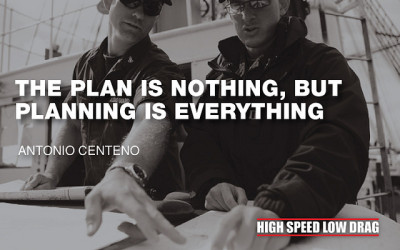 I’m not saying that there’s nothing wrong — I mean, I love lazy days. Hey, if I can go to bed at 6 o’clock at night and wake up at 9 o’clock in the morning, that’s awesome, especially with my beautiful wife. But when it comes down to it, I think many of us sometimes hold on to that myth that we are still that hard charger, almost like that guy that’s 55, or not 55, probably 45, and he still thinks he’s that 18-year old quarterback that he was in high school.
I’m not saying that there’s nothing wrong — I mean, I love lazy days. Hey, if I can go to bed at 6 o’clock at night and wake up at 9 o’clock in the morning, that’s awesome, especially with my beautiful wife. But when it comes down to it, I think many of us sometimes hold on to that myth that we are still that hard charger, almost like that guy that’s 55, or not 55, probably 45, and he still thinks he’s that 18-year old quarterback that he was in high school.
Many of us, I think, carry that mentality. That’s when it can become dangerous. It’s not really to others but it can become dangerous to us if we start to believe the hype that others are saying, “Oh, well, you’ll be able to push through this because you’re a hard charger,” and all this other stuff. And you say, “Oh, yeah, yeah, of course, I am.” But if you don’t keep yourself in a system, if you don’t either set up a regimen for yourself or you become part of a group, which is one of the reasons we started the High Speed Elite is simply I see a lot of guys that, in a sense, need to be put themselves into an accountability group.
They need to be surrounded by other guys who are truly going to hold them accountable and tell them, “Hey, your baby is ugly. Sorry, but you need to go back. You need to improve on that because you’re not putting in what I know you can put it.” And I think that’s when that myth can become dangerous, is when we start to believe it ourselves and we have truly fallen out of it.
Tom: Yeah, I completely agree. Actually, there’s literally nothing else I could add to that except that, I guess, kind of going with that and saying that I think the system, yeah, it’s great for creating that.
Antonio: Well, you could always add just a Semper Fi. Any time you had a Semper Fi or something, it becomes better.
Tom: Yeah, okay. I like that.
Antonio: Yeah, here we go.
Tom: That’s going to be my cue to move on to myth number six.
Antonio: Myth number six. So we got — Go ahead.
Tom: Yeah, go for it. Okay. Veterans are tightly disciplined and work within strict boundaries. I figure I’d take that one.
Antonio: Yeah.
Tom: Because we were talking earlier about this a little bit and the concept that, I think, the majority of the time, I actually, my experience, when I was a platoon leader, the experience of most of my soldiers and then when I was a company commander as well, my whole company, that there were really never very strict boundaries. There might be, but the reality was that almost everything was undefined.
So I’m not saying that there weren’t rules, there weren’t rules of engagement and that there weren’t certain, well call them TTPs, tactics, techniques and procedures, and all this, and SOPs, there weren’t a lot of things to draw from. But the reality is that almost every scenario I went up against, deployed or back in the States, was something kind of material, if that’s a good work for it, or kind of uncertain.
Usually, there was a lack of information. This myth is completely false. It’s the exact opposite. Veterans are, while they might be actually tightly disciplined, they’re great at working outside boundaries, outside strict boundaries. What are your thoughts on that, Antonio?
Antonio: I completely agree. I think that we are made to be able to work outside of the boundaries. And I was just speaking with a gentleman that when he was, a good of friend of mine, Ryan Masters. He’s known as The Spartan Doctor. He runs The Workout Corner. It was funny, he was watching the Pacific and what was the band of brothers and he’s just going through all this for the first time. He’s just like, “Man.” And he’s a systems guy like me and he’s just like, “You guys had such great systems. I’m like looking because you could get all this training and then they put you in this environment.”
I’m like, “Yeah.” That’s what’s great about having that, setting up those systems, having that bit of discipline in peace time because when you’re set on a deployment or you’re set on some type of float or wherever you’re going, when you get put into that uncertainty, that’s when all of that training can come into. So we are great. We can work within boundaries but I find that when you’re back in garrison, that that’s when you’re literally going crazy.
Tons of guys love being deployed because they have so much more freedom and they find that the skills that they built up all of a sudden works wonders and it allows them to get the job done in any situation. Doesn’t matter if you’re providing humanitarian aid relief or if all of a sudden you’re chasing pirates off the Coast of Somali or Djibouti.
Or it doesn’t matter what you’re doing. In a sense, you’re disciplined. I mean, you could get transferred into another unit. There are guys, we see this, that leave the Coast Guard and they come over — Or I’m sorry. I don’t know about the Coast Guard but I know that in the Navy, all the time, we have corps men inserted with the Marine Corps. I know with the Army, we will have Marines go over and go through Ranger school. And it’s just something that it’s totally different environment.
You guys could use that word latrine. I mean, we’re lost when you say, “Go to the latrine.” I mean, I need to use the head. I mean, you’re putting a whole different unique environment and yet you’re able to make it happen.
Tom: Yeah, I completely agree. I think that myth is just completely false. I think it’s except what you said.
Antonio: Well, now, we’ve got the most important one. Myth number seven. Veterans are always well dressed and well groomed. And I’ll take this one because supposedly I am the men’s style guy. And this is not always the case. In fact, there’s this one guy I hear out in San Diego, his name is John Dumas. And from what I hear, the guy just wears a trucker’s hat, doesn’t shave half the time and it’s just really, really doing–
No. That is not the case. I think what it comes down to, one of the reasons, a lot of people, especially in the civilian world, they think that dressing well somehow is not manly. And I’ve been working part of my whole business is built off the cause and mission to help men understand that actually dressing sharp is not about the clothing or not about the style. It’s actually about how it transforms you as a man.
Because if you have to keep your boots well shined, which I know they don’t have to anymore. It’s a whole different military. But if you have to keep your uniform pressed, if your ribbons have to be in exact place, all of that requires attention to detail. There’s a reason why you have to be able to break down your weapon and to be able to clean all the parts and then reassemble. Because what happens if you get rust on the inside? I mean, what if you pull back and then you look at the bolt and there’s rust all over it? Tom, what’s going to happen to that weapon?
Tom: It’s not going to fire.
Antonio: Exactly. It doesn’t matter if you’re in the Army. It doesn’t matter if you’re in the Marine Corps. It doesn’t matter if you’re in the Navy. And the Navy and the Marine Corps, because we’re maritime, I always said you’ve got just elementary in the Army. You are dealing with water and just sand in there. Exactly. You cannot accomplish your mission. A lot of people assume that we carry that forward, isn’t always the case. It’s a good thing, in a sense, I think — And really my point with this myth is that they assume that we’re all going to be all in uniform looking pretty sharp.
And that’s a good thing if you’re applying for a job that you’re going to be customer facing. But it could be a disadvantage to you if you’re looking to break into a field maybe that they don’t perceive that as a great thing. Let’s say you want to become a computer programmer or you want to get into a field maybe — I have one guy. It’s interesting. He’s a former Army, or former, I’m sorry, Marine Corps Recon. And he actually is in a surfboard industry. And he actually goes around, works with guys that are making custom made surfboards and sells them to art galleries as pieces of art.
And so he had to change his image quite a bit. And so when he’s out there in San Clemente, he has a very different look when he’s out there hanging out with the surfers and talking with them than he does when he goes to the art gallery. And, I think, the key to remember as a veteran is that we dress for the occasion. So we were alphas, whenever we were checking in our garrison, we would wear our dress blues as Marines whenever we had the Marine Corps birthday, we wore our BDUs out in combat.
And all of that stuff, we dress for a reason. And we always made sure — The bigger thing, again, is that we control our image and that we made sure it was functional and that it sent the message that we wanted to send.
Tom: Bingo. Again, nothing to add there, Antonio. You killed it.
Antonio: Cool. All right.
Tom: Yeah, go ahead.
Antonio: Tom, maybe you want to quickly, we’ll go through and we’ll summarize the points and we will end today’s broadcast.
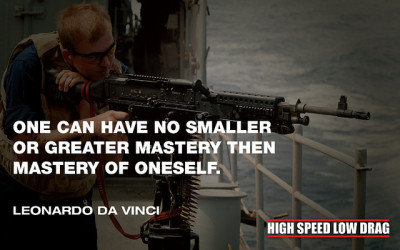 Tom: Sure. To summarize, we went through the seven myths that civilians employers have about veterans and really just civilians in general. That these are the myths that veterans interact with on a daily basis when they’re transitioning out and even years after they’ve transitioned out. Myth number one was that vets had been trained to be mindless drones. Myth number two, that veterans are mentally and emotionally unstable. Of course, all these myths are not true. Myth number three, that veterans are combative and physically aggressive, which, as we talked about, obviously not the case.
Tom: Sure. To summarize, we went through the seven myths that civilians employers have about veterans and really just civilians in general. That these are the myths that veterans interact with on a daily basis when they’re transitioning out and even years after they’ve transitioned out. Myth number one was that vets had been trained to be mindless drones. Myth number two, that veterans are mentally and emotionally unstable. Of course, all these myths are not true. Myth number three, that veterans are combative and physically aggressive, which, as we talked about, obviously not the case.
Most are pretty laid back. Myth number four, the veterans are foul-mouthed and nosy — Noisy, excuse me. Which, in some cases. But we also know when to cut it off, that’s for sure. Myth number five, veterans are all hardworking, nose to the grindstone types. Again, I think, that’s true. We are hardworking but not always the case. Myth number six, veterans are tightly disciplined and work within strict boundaries.
I think the discipline part is true but we actually work better outside of boundaries. Myth number seven, veterans are always well dressed and well groomed. And like John Lee Dumas proves, not all of us actually are. Oh, I just went there. I know. I’m worse than John. I had a two month old beard recently.
Antonio: I saw that, man. I thought you were going to go Special Ops or something because we know that’s a requirement. They basically improve your accuracy, right?
Tom: That’s it. That’s what I was working on. Yeah, that sums up the seven myths that veterans experience, that civilian employees have about veterans. And to wrap this up, though, one of the things we touched on today was the tribe aspect, which I really think we should hit harder next time. Maybe that’s subject for a whole episode.
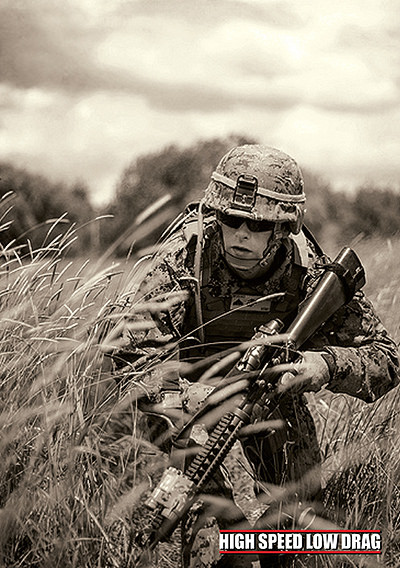 Because what we’re doing at highspeedlowdrag.org, and specifically with our Elite Mastermind called highspeedelite.com, is we’re trying to tighten up this tribe of veterans to give veterans like you to join us, John Dumas, Antonio Centeno and myself and dozens of other high speed veterans to connect and leverage each other’s strengths and really just build a small tight knit community.
Because what we’re doing at highspeedlowdrag.org, and specifically with our Elite Mastermind called highspeedelite.com, is we’re trying to tighten up this tribe of veterans to give veterans like you to join us, John Dumas, Antonio Centeno and myself and dozens of other high speed veterans to connect and leverage each other’s strengths and really just build a small tight knit community.
It might not be for everyone but, I think, if you’re listening to this and it might be the thing for you if you are looking for something you need to help you succeed in the civilian world.
Whether that means get the dream job that you believe you deserve and you do deserve, whether it’s learning how to not settle for less than your worth, whether building your own business. I mean, Antonio Centeno and John Dumas are experts at this. And just having access to them alone is–
Antonio, I don’t even know what you charge per hour. It could be in the thousands. But the point is, it sounds like that the end state of this, that we’re building this communities that people can have one on one interaction with Antonio and John and myself and with the whole tribe essentially of other veterans. So if you’re interested in that, check out highspeedelite.com.
And we actually have a live training coming up that we mentioned earlier. It’s going to be on 21 August at 3:00 p.m. Pacific, 6:00 p.m. Eastern. So check it out and we’re going to be talking all about this, get the chance to actually hang out with Antonio, John and myself live while we go through the four things that veterans need to do to be successful in the civilian world. And do not skip number two. Otherwise, you will fail. So, Antonio, that’s all I got, man.
Antonio: All right. Well, good catching up. We’ll do another one of this for next Thursday. Let us know. We want to see. We really appreciate you guys listening here on iTunes or Stitcher or wherever you’re at. But leave a comment, leave a review. It really does help us out. I think what that does is it helps other veterans find this. And you guys know we need to get the motivation out there and we need to help raise up and bring everyone up to speed because it’s tough out there.
I mean, yeah, we can do better. So that’s what this is about and, gentlemen, we will see you in the next podcast. Take care. Until next time.
Veterans, your education doesn’t stop here. Go to highspeedelite.com to join the exclusive veterans mastermind that will give you the unfair advantage to succeed in both business and life. We have dozens of training courses, HD videos, a private Facebook group, and the chance to interact daily with John and other successful veteran entrepreneurs every month on live hangouts and webinars.
